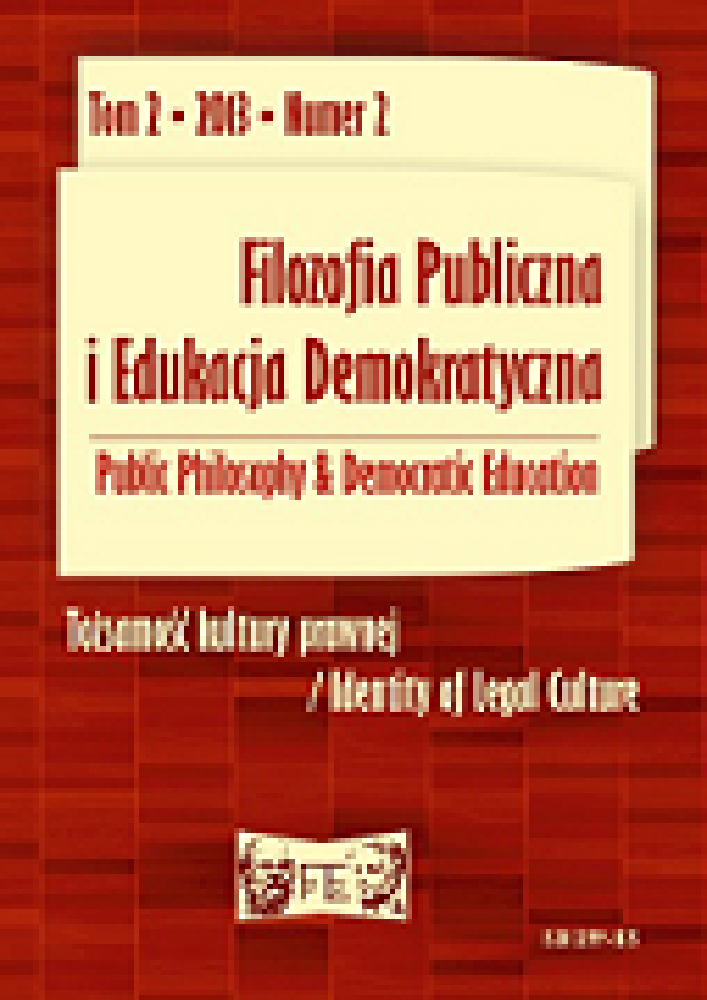Abstrakt
In recent years, the concept of involution has been widely spread, and more and more articles begin to use the concept with its extended meanings to discuss social problems in China. Howev-er, there is little discussion on the evolving meanings of involution, which makes the use of the concept quite arbitrary. In the early stage of the development of involution, it was a concept based on econom-ic theory and the tendency of the generalization of the concept calls for more systemic discussion across academic disciplines. In order to take a new perspective to understand employee performance, espe-cially some deviant or withdrawal behaviors, this paper analyzes the specific meaning of the concept and the possible psychological fac-tors behind it. After the theoretical discussion of the concept, this paper also tries to seek solutions to effective motivation at workplace.
Bibliografia
Alderfer C.P., “An Empirical Test of a New Theory of Human Needs”, Organizational Behavior and Human Performance 1969, May, pp. 142–175.
Antal A.B., Debucquet G., Fremeaux S., “Meaningful Work and Artistic Interventions in Organizations: Conceptual Development and Empirical Exploration”, Journal of Business Research 2018, no. 85, pp. 375–385.
Arnold J., Work Psychology: Understanding Human Behavior in Workplace, 5th ed., Financial Times Prentice Hall, New York 2010.
Barber K., “Strategies for Implementing a Successful Training Program”, Training & Development 2012, no. 66(8), pp. 39–41.
Bian Y., Dong Q., “Can Matchboxes be Used as the Candlestick- Duncker’s Functional Fixedness Experiment”, Mental Health Education in Primary and Secondary School 2012, no. 5, pp. 33–35.
Cao L., “Traditional Media Is in the Trap of Involution”, Youth Journalist 2018, no. 28, pp. 96 (DOI: https://doi.org/10.15997/j.cnki.qnjz. 2018,28.059).
Donaldson S.I., Ko I., “Positive Organizational Psychology, Behavior and Scholarship – A Review of the Emerging Literature and Evidence Base”, The Journal of Positive Psychology 2010, no. 5(3), pp. 177–191.
Duara P., Culture, Power and the State: Rural North China, Stanford University Press, Palo Alto 1991, p. 78.
Follett M.P., Creative Experience, Longmans Green & Co., New York 1924.
Fu M., “On Involution: Teachers Career Development in Rural China”, Journal of Education Forum 2020, no. 47, pp. 4–6.
Gao S., “Involution: Cultural Reproduction of School Education Process”, Journal of Education Research and Experiment 2020, no. 04, pp. 13–18.
Geertz C., Agricultural Involution: The Processes of Ecological Change in Indonesia, University of California Press, Berkeley 1969, p. 77.
Guo J., “A New Interpretation of the Concept of Involution”, Sociological Studies 2007, no. 3, pp. 194–208.
Hassan S., Mahsud R., Yukl G., Prussia G.E., “Ethical and Empowering Leadership and Leader Effectiveness”, Journal of Managerial Psychology 2013, no. 28(2), pp. 133–146.
Herzberg F., Mausner B., Snyderman Bloch B., The Motivation to Work, Wiley, New York 1959.
Huang Z., “Involution Revisited and Thoughts on De-Involution”, Opening-up Times 2021, no. 01, pp. 157–168+8.
Huang Ph.C.C., The Peasant Economy and Social Change in North China, Stanford University Press, Palo Alto 1988, p. 128.
Liu S., Qiu Z., “The Discussion of the Concept of Involution”, Sociological Studies 2004, no. 5, pp. 96–110.
Maslow A.H., The Psychology of Science, Gateway, Southlake 1966.
Pomeranz K., The Great Divergence: Europe, China, and the Making of the Modern World Economy, Jiangsu People Press, Nanjing 2003.
Qi Y., Wu X., “Job Demands-Resources Model: The Development of Theoretical and Empirical Research”, Journal of Beijing Normal University 2018, no. 6(270), pp. 28–36.
Robbins S.P., Judge T.A., Organizational Behavior, 15th ed., Tsinghua University Press, Beijing 2017.
Sun C., Ye J., “The Involution of Development District Administration During Transformation Process – The Discussion Based on Administrative Ecology”, Administration Forum 2020, no. 27(01), pp. 42–48.
Wang C., “Involution Dilemma and Solutions for Teacher Development in Rural China”, The Times of Think Tank 2018, no. 36, pp. 258–259.
Wang G., “The Analysis of Involution of Entrepreneurial Management in Communities”, Agriculture and Economy 2020, no. 06, pp. 44–46.
Licencja
Prawa autorskie (c) Autorzy zachowują prawa autorskie i prawa do publikacji swoich artykułów w tym czasopiśmie, przyznając czasopismu prawo do ich rozpowszechniania na warunkach CC BY-NC-ND 4.0
